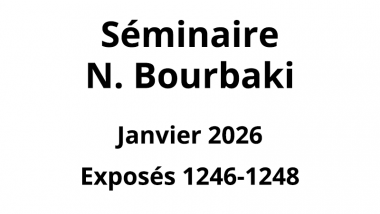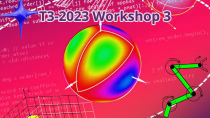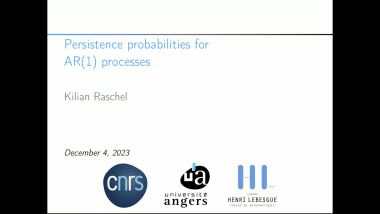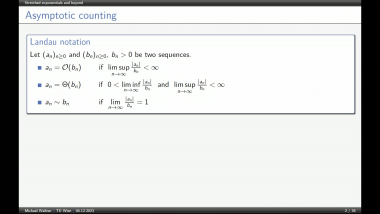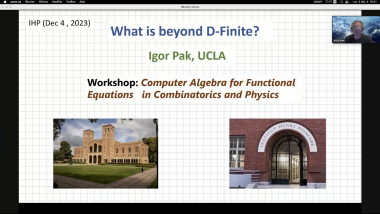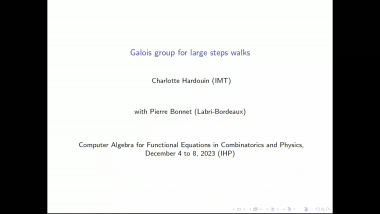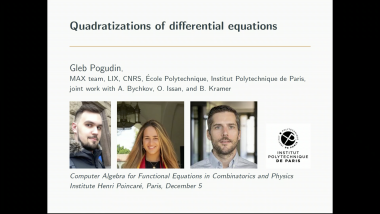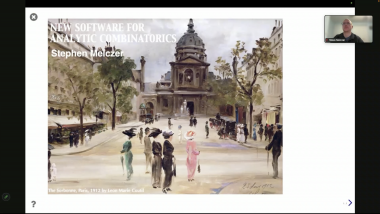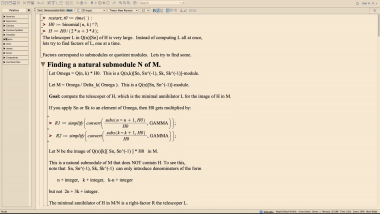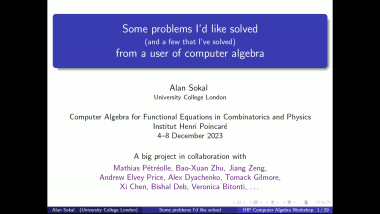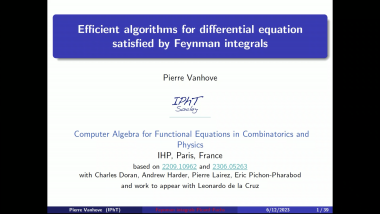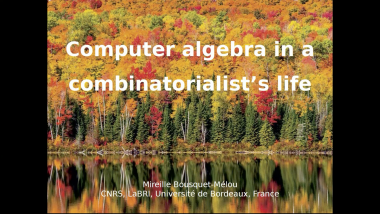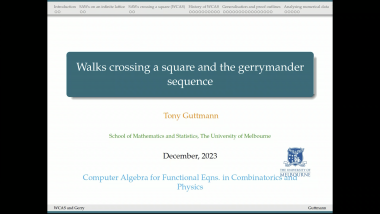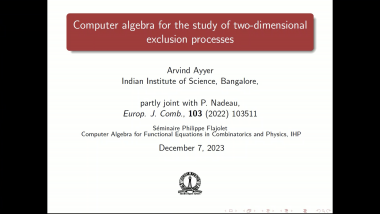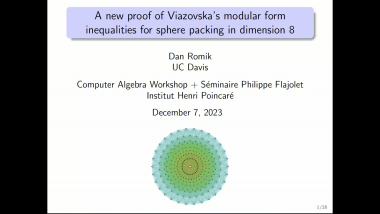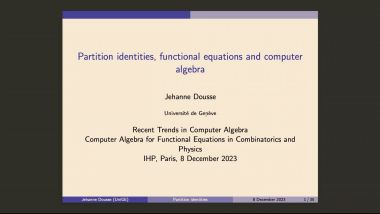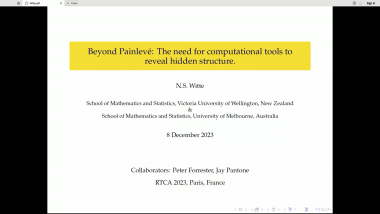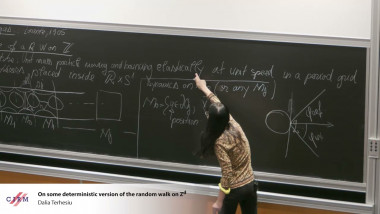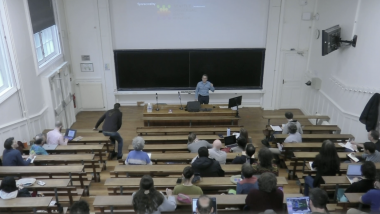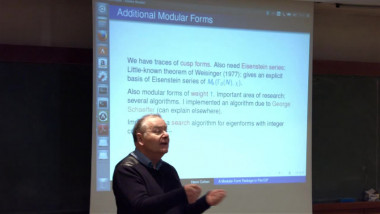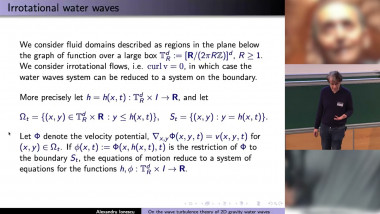Submodule approach to creative telescoping
This talk proposes ideas to speed up the process of creative telescoping, particularly when the telescoper is reducible. One can interpret telescoping as computing an annihilator $L$ in $D$ for an element $H$ in a D-module $M$ . The main idea is to look for submodules of $M$. For a non-trivial submodule $N$, constructing the minimal operator $R$ of the image of $H$ in $M / N$ gives a right-factor of $L$ in $D$. Then $L = L′R$ where $L′$ is the telescoper of $R(H)$. To expedite computing $L′$, compute the action of $D$ on a natural basis of $N$, then obtain the telescoper $L′$ for $R(H)$ with a cyclic vector computation. The next main idea is that when $N$ has automorphisms, use them to construct submodules. An automorphism with distinct eigenvalues can be used to decompose $N$ as a direct sum of submodules $N_1, \ldots, N_k$ . Then $L' = \text{LCLM}(L_1, \ldots, L_k)$ where $L_i$ is the telescoper of the projection of $R(H)$ on $N_i$. An LCLM can greatly increase the degrees of the coefficients, so $L′$ and hence $L$ can be much larger than the factors $L_1, \ldots, L_k$ and $R$. Examples show that computing each factor $L_i$ and $R$ separately can save a lot of CPU time compared to computing the full telescoper $L$ all at once with standard creative telescoping.


